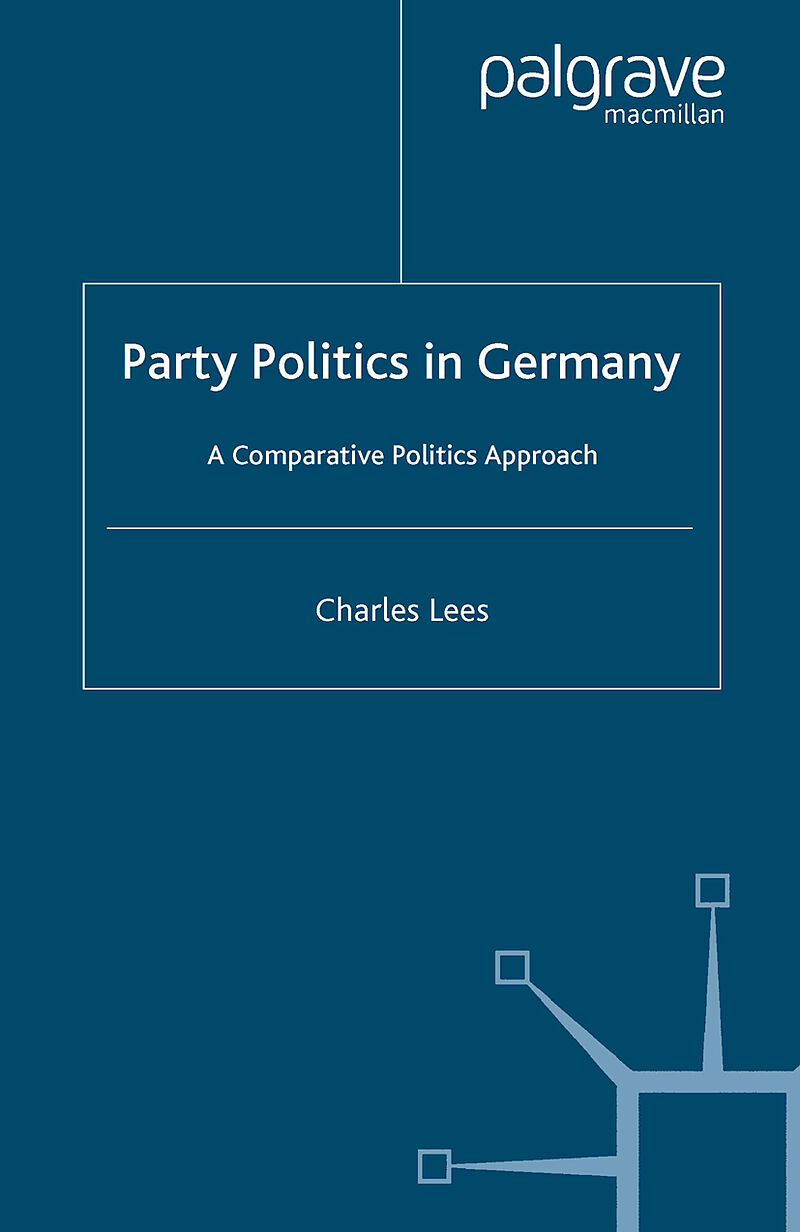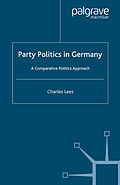

Party Politics in Germany
Beschreibung
Party Politics in Germany is the only English-language study of its kind and examines the phenomenon of party politics in the Federal Republic through comparison across time and space. It draws upon new data from the 2002 Federal elections and recent Land elec...Format auswählen
- Kartonierter EinbandCHF 185.60
- E-Book (pdf)CHF 118.90
- Fester EinbandCHF 212.00
Wird oft zusammen gekauft
Andere Kunden kauften auch
Beschreibung
Party Politics in Germany is the only English-language study of its kind and examines the phenomenon of party politics in the Federal Republic through comparison across time and space. It draws upon new data from the 2002 Federal elections and recent Land elections, as well as on a far more explicitly comparative literature than is generally found in single-country studies. The book not only sheds new light on political phenomena in Germany but also allows students of the comparative method to apply some of the key concepts, models and approaches with which they are familiar to the rich context of a single country study.
'Party Politics in Germany is a significant addition to the existing literature and could become a standard text for a range of scholars, German specialists and comparativists alike. Charles Lees gives us important new perspectives on Germany's historical development and contemporary changes. His treatment throughout is firmly grounded in comparative theory - unusual for a book with a single-country focus - and provides us with new insights into the German case. It is a path-breaking venture that will be widely welcomed.' - Gordon Smith, Emeritus Professor, Department of Government, London School of Economics and Political Science, UK
'Charles Lees' book on German political parties makes an important contribution to this new mainstream of political science scholarship. Well structured and clearly written, Party Politics in Germany will be enjoyed by its readers and will encourage academics to make certain that they include case studies of Germany in their courses. Highly recommended.' - Professor Alan Ware, Fellow and Tutor in Politics, Worcester College, UK
Autorentext
CHARLES LEES is Lecturer in Politics at the University of Sheffield and Academic Fellow at the Sussex European Institute. He is Editor of the PSA journal Politics , Managing Editor of Journal of Common Market Studies , and a member of the Editorial Board of Learning and Teaching in the Social Sciences . He is also Secretary of the Association for the Study of German Politics (ASGP) and a member of the Executive Committee of the Political Studies Association. His recent publications include The Red-Green Coalition in Germany: Politics, Personalities and Power (2000).
Inhalt
PART 1: GERMANY IN COMPARATIVE CONTEXT Introduction Why Compare? Rationale of the Study Book Structure PART 2: THE DEVELOPMENT OF SOCIAL AND POLITICAL CLEAVAGES IN GERMANY BEFORE 1945 Introduction Cleavage Theory The Lipset-Rokkan Model Germany in Comparative Perspective Summary PART 3: SOCIAL AND POLITICAL CLEAVAGES IN THE SECOND REICH AND WEIMAR REPUBLIC Introduction Development of Political Cleavages in the Second Reich The Weimar Republic Summary PART 4: SOCIAL AND POLITICAL CLEAVAGES IN THE FEDERAL REPUBLIC, 1945-2002 Introduction The Re-emergence of Political Cleavages, 1945-1949 The Federal Republic: 1949-1969 1969-1990: De-alignment and Electoral Instability Post-Unification Germany, 1990-2002 The 2002 Bundestag Elections Summary PART 5: PARTISAN IDENTIFICATION, VALUE ORIENTATION, AND ECONOMIC VOTING Introduction Partisan Identification Value Orientation Economic Voting Summary PART 6: STATE STRUCTRES, ELECTORAL SYSTEMS, AND PARTY SYSTEMS Introduction State and Administrative Structures Electoral Systems Party Systems Summary PART 7: POLITICAL PARTIES Introduction Problems of Establishing a Single Classificatory Scheme 15 'Species' of Political Parties: German Parties in Comparative Context Genus One: Elite-Based Parties Genus Two: Mass-Based Parties Ethnicity-Based Parties Electoralist Parties Movement Parties Summary PART 8: COMPETITION AND CO-OPERATION Introduction Political Competition Political Co-operation Summary PART 9: CONCLUSION Introduction Combining the German Politics and Comparative Politics Literature Applying Key Comparative Politics Concepts, Models, and Approaches Problematising the Trade-Off Between Depth and Breadth, Micro-and Macro-Level Explanation The Balance Between the Singularities of the German Sonderweg and the Commonality of Characteristics Shared by Germany and other Nations Finding a Consistent Theoretical Framework: Assessing the 'Political Marketplace' Metaphor Final remarks Bibliography Appendix: Tables and Figures
Produktinformationen
Weitere Produkte aus der Reihe "New Perspectives in German Political Studies"
Tief- preis
- Party Politics in Germany
- C. Lees